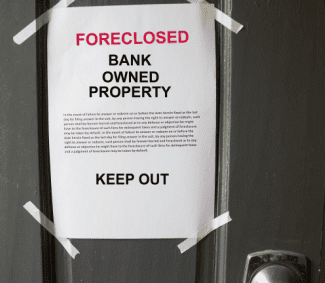5 Hints for Hiring a Contractor
by Mary Umberger

“They were making emotional decisions,” she said of many home-remodeling experiences she’s seen. “Emotion was the overriding factor.”
But it wasn’t just the post-disaster mindset that made an impression on her. It seemed to her that even people in ordinary circumstances often approach expensive building and remodeling decisions with their hearts, not their heads. Regret often ensues, she said.
Ricchi decided consumers need a blueprint, and not just for putting their houses together. She blogs at TheContractress.com, a site she said is dedicated to demystifying the contracting process for consumers.
And now, she’s written “Avoiding the CON in Construction” (Centerline Production, $19.95), a book intended to provide an insider’s view of the front end of the process — finding and researching the right workers to do the job and signing a contract in an informed way.
Five things for consumers to know about tackling a construction project with a level head:
1. Scrutinize a candidate contractor’s licensing: Not all licensing is the same, she said. For starters, a consumer needs to distinguish between “professional” and “occupational” licensing.
“Occupational licenses have to do with the business entity,” Ricchi said. “Is the company registered with the state so the state can collect taxes?
“A professional license has to do with a person who can do harm if they perform their trade incorrectly,” she said. “That’s why surgeons, nurses and contractors are licensed by the state — because they can cause harm.”
But each state and many municipalities have their own standards for contractor licensing, and consumers need to be familiar with the local requirements, which might range from no professional licensing at all to merely paying a fee for it, to passing exams and completing continuing-education requirements, she said.
Consumers should check with local building departments and state offices of professional licensing to understand the requirements and to see if a candidate contractor has met them — these records are often found online, she said.
2. A contractor’s insurance protects both his business and the consumer’s financial interests, she said. A contractor should be able to prove that he has it.
“The state will have a minimum amount of liability insurance that it requires,” Ricchi said. “It varies from state to state, but what I’m finding in Florida is the insurance companies are pretty much sticking with $1 million.”
3. Be prepared to do some digging to research a contractor’s background and reputation, she said.
In this day and age, records are everywhere, Ricchi said. “It’s so easy with the Internet now that within 30 minutes you can have a pretty good idea of a person’s character, and that might be the deciding factor if you’re looking at three contractors and they’re all compliant in regard to licensing and insurance.”
Court clerks’ offices maintain records of civil lawsuits and criminal actions, though the way they manage the records varies widely; it also may reveal tax liens.
Ricchi said in big building or renovation projects, a homeowner who wants to be sure about legal ghosts in a contractor’s closet might want to hire a professional investigator, not only to do the research but to help interpret the legalese that he might turn up in court records.
Private sources, such as user-review Web sites like Angie’s List or your local Better Business Bureau, also can be helpful, she said.
How deep to dig? Until you hit your comfort level, Ricchi said. Maybe it needn’t be deep at all, if the contractor also comes highly recommended from trusted sources, she said.
4. Consider consulting a lawyer before signing a contract, Ricchi said.
She believes the language of most contracts that contractors offer to clients is intended to favor the contractor. And she said homeowners are known not to even read construction contracts before signing them.
Obviously, some tasks are so simple and straightforward that contracts won’t be terribly complex, she said.
“If it’s an expensive job, I think it’s worth the money to have (a lawyer) look at the contract,” she said. “And you should work with an attorney who (has a background in) construction law.”
She said such specialists usually can be found through recommendations from local bar associations.
5. Does this sound like a lot of work? Ricchi said it sure does — and it is.
“I think it’s important,” she said. “But I can tell you this, as a contractor who hires a lot of subcontractors, you’d better believe I do it. It can be time-consuming, but once I’ve gone through it, then I’ve got this database of contractors who I will use again and again.”
Mary Umberger is a freelance writer in Chicago.















 Accessibility
Accessibility